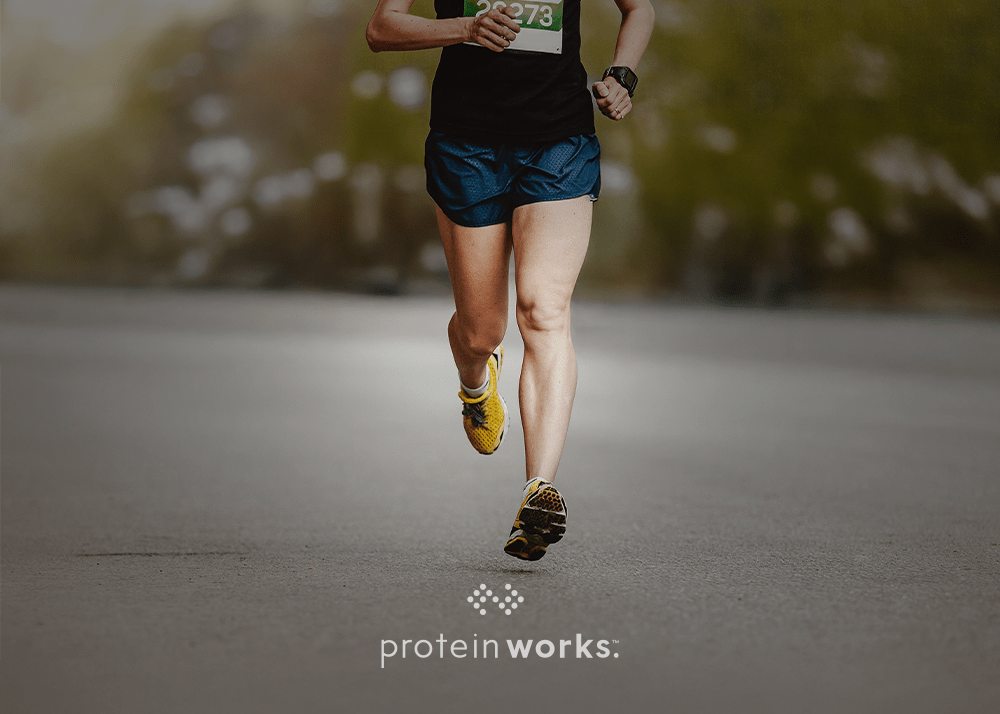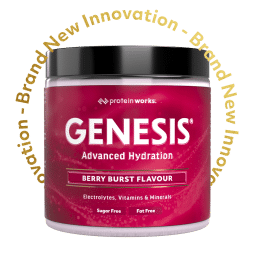
How Much water Should You Drink For A Marathon?
Got a marathon on the horizon, or just starting your training now? Hydration can make or break your race, so drinking enough liquid is vital. Without enough water, you could suffer from cramps, fatigue or even heat stroke – and too much can lead to overhydration. In this article, we’ll explain exactly how much water to drink for a marathon and why it matters. We’ll also discuss how you can use electrolytes to smash your hydration (and running) goals.
Why hydration matters in a marathon
If you’re already training, you’ll know that marathon running puts extreme demands on your body, both physically and mentally. In fact, when you’re running, you can lose in excess of 1-2 litres of sweat per hour! If you’re not replenishing this liquid, you’ll quickly become dehydrated. This can impair your performance by reducing the volume of your blood, and increasing your heart rate and core temperature. Even a mere 2% drop in body weight from losing fluids can negatively affect how long you’re able to run! As a result, proper hydration will help your body in a whole host of important ways: regulating your temperature, keeping your energy levels high, and preventing any unnecessary injuries. Want to get over that finish line? Stay hydrated!
How much water do you need for a marathon?
Truthfully, there’s no one-size-fits-all answer to this question. The general guideline is 400-800 ml of fluid per hour during your race, but this may need to be adjusted based on your sweat rate and the race conditions. If you tend to sweat a lot, run hotter, or are choosing to exert yourself more on a given day, you’ll need to drink a little more to replenish the fluids you’re losing. Similarly, if it’s hot or humid when you’re running, you’ll sweat more, and therefore need to hydrate accordingly.
To give yourself the best chance of success, start the race fully hydrated, focusing on drinking plenty of fluid at least 48 hours before the race begins, and try to drink two 250ml glasses of water around two hours before the race to give your body time to absorb it. Your urine should be pale yellow before you start running. It’s important to plan a consistent hydration strategy for the race, not just drinking at the water stations you’ll find dotted along the route – use handheld bottles with carriers, bottle belts, or chest pouches to keep your H20 supply with you as you run, and take small sips regularly.
Risks of overhydration
We’ve covered what happens when you don’t have enough water, but what if you have too much? Overhydration (or hyponatremia) is a thing, and it has some pretty nasty side effects that are best avoided. Hyponatremia is caused by drinking too much water without replacing sodium, diluting your blood sodium levels too much. This can cause nausea, bloating, confusion, and in severe cases, even seizures or comas. Overhydration is easily avoided: if you’re not losing that much sweat, you don’t need to be topping up your body’s fluid supplies that much. Stick to small, regular sips as you run along the route.
The role of electrolytes
If you’re in the midst of your marathon training, chances are you’ve come across electrolytes in some form. But what exactly are they, and how can they help with your hydration in a marathon? When you sweat, you don’t just lose water. You also lose potassium, magnesium, calcium, and most of all, sodium. These essential minerals are called electrolytes, and they’re vital for many of your body’s key functions, so it’s important to keep your levels up – especially if you’re exerting marathon-levels of energy. By replenishing electrolytes lost, you’ll maintain your fluid balance, keep up your muscle function, and prevent cramping. For a deeper dive into electrolytes and why they’re important, we have put together a quick guide.
You can buy purpose-made drinks, designed to keep your body running at its best (our Genesis Hydration Drink does this incredibly), take tablets or sachets, or just add a little salt to your water for an added natural kick of sodium. When you’re running, you should aim for around 300-700 mg of sodium per hour, depending on how much you’re sweating. Keep testing amounts during your training to find the perfect amount for you!
Hydration strategies for race day
On the big day, you should have your hydration strategy down. Make sure you’ve practised getting enough fluids in during your training to avoid any surprises and get used to running with whatever water bottle/pouch you’ve chosen. Throughout the race, a combination of water and electrolyte sources will be your best bet to staying hydrated, so bring your own along to supplement whatever’s on offer at the race-run aid stations. You’ll also need to adjust your plan based on the race conditions that day: remember, hotter weather = more fluids. When it comes to strategy, we find it helpful to schedule your sips rather than just relying on thirst alone. It’s good to note when you’re in need of a drink, but often, if you’re feeling thirsty, you’re already behind on your fluid intake!
Hydration during a marathon is a real balancing act: both under- and over-hydration carry their own risks, so it’s important to get it right. Combine both water and electrolytes to maintain your performance to the max, and go for the ‘little and often’ method when it comes to sips. If you’ve practised during training and noted your own sweat rate in different weather conditions, you’ll be prepared for anything on the day. Good luck!
References
How Much Water Runners Really Need | Nike
Running a Marathon: Race Day Success | UCSF Health





